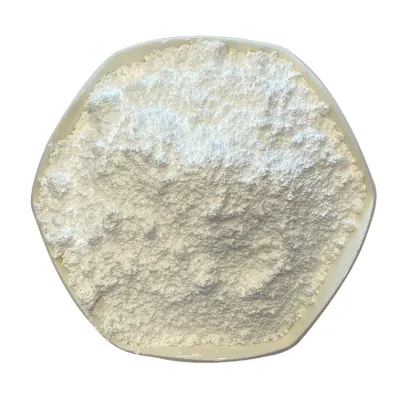
- +86-13363869198
- weimiaohb@126.com

Jun . 24, 2025 11:45 Buyela kuluhlu
The Role of Organic Intermediates
Organic Intermediates play a crucial role in organic chemistry and industrial production. They refer to various intermediate products generated during the conversion of reactants into final products in organic synthesis reactions. These intermediates are usually unstable and short-lived molecules, but their presence and properties have a decisive impact on the progress of the reaction and the selective generation of products.

Organic Intermediates are bridges on the reaction pathway
Many organic reactions are not completed in one step, but rather through a series of continuous steps. Each step involves the formation of one or more intermediate in organic chemistry. These intermediates connect reactants and products, forming a complete reaction pathway. By studying the structure and properties of intermediates, we can gain a deeper understanding of the reaction mechanism, optimize reaction conditions, and improve reaction efficiency.
Organic intermediates control the selectivity of the reaction
In many organic reactions, there are multiple possible reaction pathways that lead to the generation of different products. The properties of reaction intermediate in organic chemistry, such as its stereoconfiguration and electronic effects, can affect the activation energy of different reaction pathways, thereby determining which product becomes the main product. By regulating the properties of intermediates, precise control of reaction selectivity can be achieved to synthesize the target product.
Organic Intermediates are Key to New Reaction Design
By studying known Organic Intermediates, new reaction modes and patterns can be discovered, leading to the design of new organic synthesis reactions. For example, the research on active intermediates such as carbenes and free radicals has promoted the development of organic synthetic chemistry.
In summary, Organic Intermediates play an important role in connecting reactants and products, controlling reaction selectivity, and inspiring new reaction designs in organic reactions. In depth research on Organic Intermediates not only helps to understand the essence of organic reactions, but also has significant implications for the development of organic synthesis chemistry.
Organic Intermediates FAQs
What are Organic Intermediates?
Organic intermediates are key compounds generated during the organic synthesis process, used for further reactions to generate target molecules (such as drugs, pesticides, materials, etc.). They are usually transition products in multi-step synthesis and do not possess the complete functionality of the final product, but are crucial to the reaction pathway.
For example, benzaldehyde can be used as an intermediate in the synthesis of dyes, fragrances, and drugs.
What is the difference between Organic Intermediates and Pharmaceutical Intermediates?
Organic Intermediates: widely used in fields such as chemical engineering, pesticides, materials, etc., not limited to pharmaceuticals.
Pharmaceutical intermediates: Refers specifically to intermediates used for the synthesis of active pharmaceutical ingredients (APIs), which must comply with strict standards such as GMP.
example:
Organic Intermediates: Ethyl acetate (used as a solvent and flavoring agent).
Pharmaceutical intermediate: Acetaminophen intermediate (used for synthesizing paracetamol).
What are the main application areas of Organic Intermediates?
-
Pharmaceutical industry (such as synthetic intermediates for antibiotics and anticancer drugs).
-
Pesticides (such as herbicides, intermediates of insecticides).
-
Dyes&coatings (such as azo dye intermediates).
-
Polymer materials (such as synthetic precursors of nylon and polyester).
-
Spices and food additives (such as vanillin intermediates).
What are the synthesis methods of Organic Intermediates?
Traditional organic synthesis methods such as Grignard reaction and Foucault reaction.
Catalytic reactions (such as Pd catalyzed coupling reactions).
Biocatalysis (enzyme catalysis, green chemistry trend).
Photochemical/electrochemical synthesis (emerging sustainable methods).
Trend: Green chemistry (reducing toxic solvents and improving atomic economy).
What are the core challenges and development directions of the Organic Intermediates industry?
Challenge:
Environmental regulations such as REACH and China's "dual carbon" policy restrict highly polluting processes.
Supply chain security (critical intermediates rely on a few manufacturers).
Development direction:
Continuous flow chemistry (improving yield and reducing waste).
AI assisted molecular design (optimizing synthesis pathways).
Biobased intermediates (renewable raw materials replacing petroleum based products).
-
CAS: 79099-07-3 Factories | GMP Stock, OEM, Fast Delivery
IindabaNov.17,2025
-
CAS: 79099-07-3 Factories | GMP Quality, Factory Prices
IindabaNov.17,2025
-
GS-441524 for White Liquid Type Factories | GMP OEM Bulk
IindabaNov.17,2025
-
CAS: 79099-07-3 Factories | GMP Bulk Supply, Fast Shipping
IindabaNov.17,2025
-
gs-441524 for white liquid type factories | GMP & fast ship
IindabaNov.17,2025
-
High-Purity cas 1451-83-8 factory | GMP Bulk, Fast Delivery
IindabaNov.17,2025